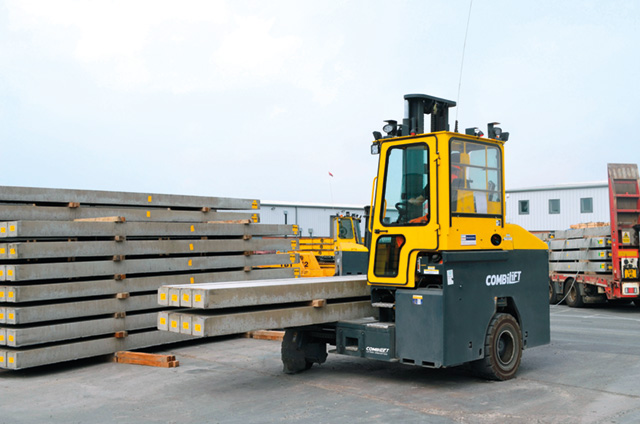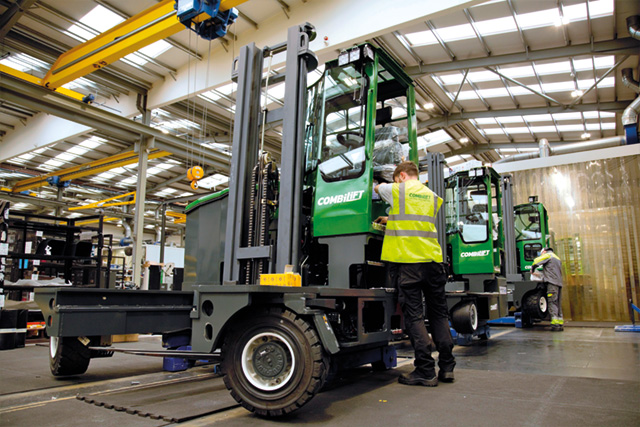
Switching to electric power is not only good for the environment but also for your workforce, your neighbours and your balance sheet, says materials handling manufacturer Combilift’s Product Development Manager, Anthony Rooney.
When Combilift was established in 1998, the world was quite a different place. In that year, Google was incorporated as a private company in California and only 9% of households had access to the internet. And in the world of industrial vehicles, diesel power was the default choice for the majority, as it was considered to offer the best performance in demanding working conditions.
Times have changed, and the growing demand for electric powered vehicles and equipment has been fuelled by shifting public attitudes and more stringent legislation. This has put pressure on manufacturers and companies in a wide variety of industry sectors to focus more on sustainability.
This means taking a long-term look at how you operate, and will often involve investment in new technology.
Combilift made its first electric C-Series multidirectional truck 18 years ago and continues to expand its range of electric powered products. In the last year alone the company has added four new electric models to its portfolio, and more than 60% of the trucks that come off the production lines in Monaghan, Ireland are now electric.
As more and more customers are opting for electric power, it is obvious that they are as committed to sustainability and a circular economy as we are.
Switching to an electric fleet from diesel is now a more attractive option and this is down to improved battery performance and technology, which enables ever increasing lift capacities and longer run times per charge.

The latest generation of electric trucks are also versatile and can work indoors and out, which can reduce the overall number of forklifts required and consequently the carbon footprint, as well as operational costs and outlay for insurance, maintenance and so on. What is good for the planet can also be good for your business.
Talking of finances: the initial cost of an electric truck may be somewhat higher than a diesel model, but over a truck’s lifetime the total cost of ownership (TCO) can be better. The cost of fuel has been even more of an issue since 1 April this year as it is no longer legal to use red diesel for non-road mobile machinery.
Just as on-street emissions from traffic has proved to be the cause of serious health problems, people need to be protected from pollution at their place of work. The British Safety Council has called for limits on the amount of exposure to diesel emissions; an electric fleet improves air quality on site and reduces the potential risks to employees, visitors and customers alike.
Roger Bullivant Ltd is the UK’s leading ground engineering company and a long-standing Combilift customer, and was one of the first companies to replace its fleet of diesel powered trucks with the electric Combi-XLE models. This investment has significantly eliminated harmful exhaust CO2 emissions and exhaust particulates inside the factory, reduced the company’s carbon footprint and lowered overall fuel costs.
Noise pollution is also an underestimated threat to human health, wildlife and environmental quality, and more and more companies are aiming to quieten down their operations by using electric trucks.
As electric powered trucks do not have traditional combustion engines or hydraulic transmissions, there is no longer any need to check and top up engine fluids or lubricants. This results in longer intervals between services, for cost savings as well as convenience.
On some of Combilift’s newest models such as the Combi-FSE sideloader, maintenance time has been kept to a minimum due to key service features. These include its quick interchangeable battery for shift work, centralised grease points on the front and rear of the load platform and removable panels for easy access to the motor.
www.combilift.com | t: +353 (0) 47 80500

